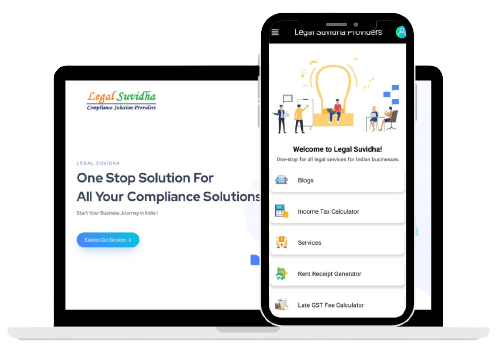ISO 27001: Information Security Management
ISO 27001: Information Security Management – A Simple Guide In today’s digital world, keeping sensitive information safe is more important...
A loan agreement is a legal contract between a lender and borrower that outlines the terms and conditions of a loan. The loan agreement defines the details of the loan, including the loan amount, the interest rate, the repayment terms, and any collateral or security that the borrower must provide.

Happy Clients
Years Experience

Happy Clients
Years Experience
Loan agreements can be used for various types of loans, including personal loans, business loans, and mortgages. The loan agreement is a legally binding document that both parties must adhere to. It is designed to protect the interests of both the lender and the borrower and to ensure that the loan is repaid according to the agreed-upon terms.
In addition to the loan amount, interest rate, and repayment terms, a loan agreement may also include provisions for prepayment penalties, late fees, and default terms. Loan agreements are typically written in clear and concise language to ensure that all parties fully understand the terms and conditions of the loan before signing the agreement.
| Clearly defines terms and conditions | A loan agreement specifies the terms and conditions of the loan, including the amount, interest rate, repayment schedule, and any collateral required. This ensures that both the borrower and lender understand their obligations and responsibilities. |
| Provides legal protection | A loan agreement is a legally binding document that protects both the borrower and lender in case of any disputes or defaults. It can be used as evidence in court to enforce repayment or to seek damages. |
| Helps build a credit history | If the borrower makes timely repayments on the loan, it can help build their credit history and improve their credit score. This can make it easier to obtain future loans or credit products. |
| Can offer flexibility | A loan agreement can be tailored to meet the specific needs of the borrower and lender. For example, it can include provisions for early repayment, refinancing, or changes to the repayment schedule. |
| Can provide lower interest rates | A loan agreement can offer lower interest rates than other forms of credit, such as credit cards or personal loans. This can save the borrower money on interest charges over the life of the loan. |
Step 1: Loan Application: The borrower submits a loan application to the lender, providing details about their financial situation and the purpose of the loan.
Step 2: Loan Approval: The lender reviews the application and determines whether to approve the loan, based on factors such as the borrower’s credit score, income, and repayment history.
Step 3: Negotiation of Terms: If the loan is approved, the lender and borrower negotiate the terms of the loan, including the amount, interest rate, repayment schedule, and any collateral required.
Step 4: Drafting of Loan Agreement: Once the terms have been agreed upon, a loan agreement is drafted. This is a legally binding document that outlines the terms and conditions of the loan.
Step 5: Signing of Loan Agreement: Both the lender and borrower sign the loan agreement, indicating their agreement to the terms and conditions.
Step 6: Disbursement of Funds: Once the loan agreement has been signed, the lender disburses the funds to the borrower. This may be done via wire transfer, check, or other means.
Step 7: Repayment: The borrower begins making regular repayments on the loan, according to the terms outlined in the loan agreement. This may involve making monthly payments, paying off the loan in full by a certain date, or other arrangements.
Step 8: Completion of Loan: Once the loan has been fully repaid, the borrower has fulfilled their obligation, and the loan agreement is considered complete.
1. Loan Application
2. Credit Report
3. Income Verification
4. Collateral Documentation
5. Business Documents
6. Legal Documents
7. Loan Agreement
A secured loan is a loan that requires collateral, while an unsecured loan does not. If you default on a secured loan, the lender can seize the collateral to recover the remaining balance of the loan. If you default on an unsecured loan, the lender will have to take legal action against you to recover the remaining balance of the loan.
Yes, you can negotiate the terms of a loan agreement with the lender. However, not all lenders may be willing to negotiate the terms. It’s important to have a clear understanding of what you want to negotiate and to be prepared to make a strong case for why you believe the terms should be changed.
If you can’t repay the loan, you risk defaulting on the loan. This can lead to the lender taking legal action against you to recover the remaining balance of the loan. It’s important to communicate with the lender as soon as possible if you’re having trouble repaying the loan to explore alternative repayment options.
The length of time it takes to get a loan agreement can vary depending on the lender and the type of loan. Some lenders may be able to provide you with a loan agreement within a few hours, while others may take several days to process your application and provide you with a loan agreement.
Once you’ve signed a loan agreement, it becomes a legally binding contract between you and the lender. It can be difficult to get out of a loan agreement, but there are some options available to you. You can explore refinancing the loan with another lender, negotiating a new repayment plan with the current lender, or seeking legal advice.
Yes, a loan agreement can be used for a personal loan. Personal loans are typically unsecured loans, which means that they don’t require collateral. It’s important to read the loan agreement carefully and understand the terms and conditions of the loan before signing it.
#answer
#answer
#answer
#answer
With a commitment to exceeding expectations and a passion for delivering results, choosing us means choosing a partner dedicated to your success.

We provide free of cost consultation and legal advice to our clients.

We are a team of more than 15+ professionals with 11 years of experience.


All our services are online no need you to travel from your place.

There are no hidden & extra charges* other than the quote/invoice we provide.

We aim that all our customers are fully satisfied with our services.

We value your time and we promise all our services are delivered on time.

We provide free of cost consultation and legal advice to our clients.
In this Journey of the past 14+ years, we had gained the trust of many startups, businesses, and professionals in India and stand with a 4.9/5 rating in google reviews.We register business online and save time & paperwork.
Trustindex verifies that the original source of the review is Google. Mayank & the Legal Suvidha team are fantastic. They really try to understand the business like insiders and don't give you templatized solutions. The staff are extremely supportive and go out of their way to help you. I would recommend Mayank to anybody new to the startup ecosystem!Trustindex verifies that the original source of the review is Google. Great experience with smooth process during the startup india registration Excellent coordination and teamwork with effective implementation in very limited timeTrustindex verifies that the original source of the review is Google. Sound expertise, good coordination, efficient and timely execution.Trustindex verifies that the original source of the review is Google. Good service and very helpfulTrustindex verifies that the original source of the review is Google. We had a great experience working with the LegalSuvidha team - we have used them for both our Pvt Ltd and LLP formation and their team has been very proactive, knowledgeable, prompt and helpful. They helped with all DSCs as well and couriered them to us. Very professional and thorough. We also got our Startup India , MSME registrations through them promptly. Overall highly recommended. Special callout to Nidhi, Saloni, Anjalin, Shreya and Priyanka for promptly helping us throughout the process.Trustindex verifies that the original source of the review is Google. I am writing to thank you for the quality of service provided by your company. We sincerely appreciate your efficient, gracious customer service, the level of detail and accountability you have demonstrated and the way you conduct business as a whole. A special Thanks to Ms Saloni for her great help throughout.Verified by TrustindexTrustindex verified badge is the Universal Symbol of Trust. Only the greatest companies can get the verified badge who has a review score above 4.5, based on customer reviews over the past 12 months. Read more


Explore more of our blogs to have better clarity and understanding
of the latest corporate & business updates.
ISO 27001: Information Security Management – A Simple Guide In today’s digital world, keeping sensitive information safe is more important...
Operating an online store comes with numerous benefits—but also regulatory obligations. Securing the right licenses and permits is essential to...
Directors shape a company’s governance and strategic direction. Among board members, Executive Directors and Non‑Executive Directors (NEDs) play distinct yet...
The Articles of Association (AOA) form the backbone of a company’s internal governance, setting out the rules, rights, and responsibilities...
Selecting the optimal legal form is a critical decision when launching your U.S. venture. Both LLCs and Corporations offer liability...
Expanding your U.S.-based business into India unlocks access to a vast consumer market, a skilled workforce, and cost advantages—but also...
Here are some answers to potential questions that may arise as you start your business.
Register your business, obtain necessary licenses, and fulfill tax obligations.
Consider factors like ownership, liability, and tax implications to choose from options like sole proprietorship, partnership, or company registration.
Choose a unique business name, obtain required IDs like Director Identification Number (DIN), and file incorporation documents with the Registrar of Companies (ROC).
Obtain GST registration, trade licenses, and any industry-specific permits required to operate legally.
Maintain accurate financial records, file tax returns on time, and adhere to the tax laws applicable to your business.
Yes, startups in India can benefit from various government schemes offering tax exemptions, funding support, and incubation facilities.
Secure patents, trademarks, or copyrights to safeguard your intellectual assets from infringement or unauthorized use.
Challenges include navigating bureaucratic hurdles, complying with complex regulations, and competing in a crowded marketplace.
Looking For More Information? Contact Us
Sign up to receive email updates on new product announcements, special promotions, sales & more.
Redefining the experience of legal services. Now all Professional Services in a Single Click !


Copyright © 2025 Legal Suvidha Providers LLP. All rights reserved.
